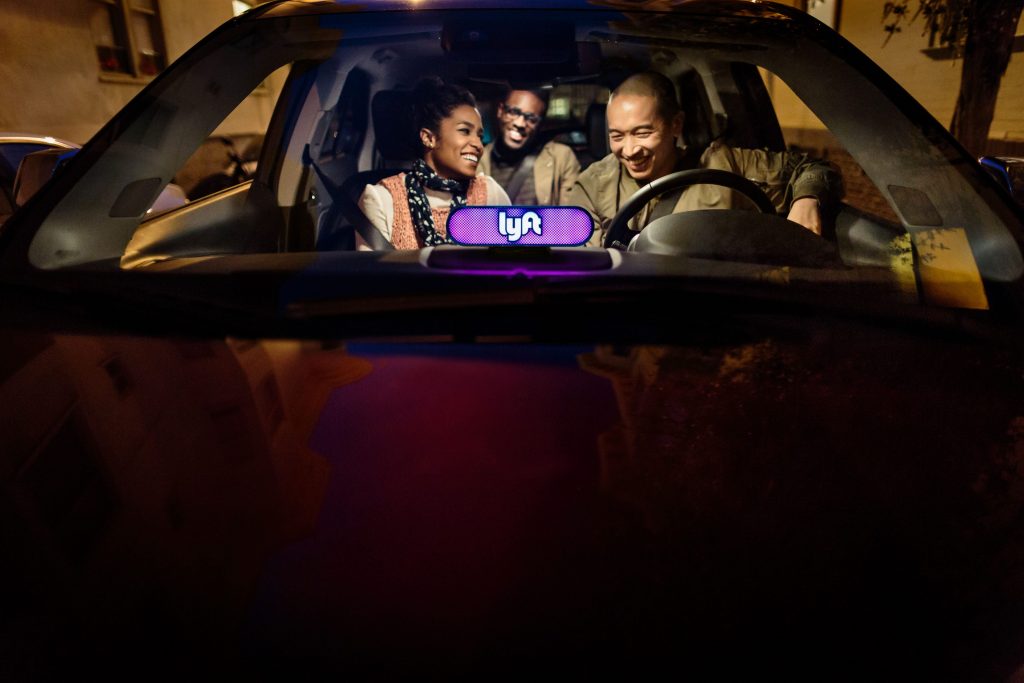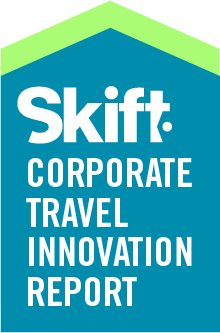Ridesharing Gets More Seamless — Skift Corporate Travel Innovation Report

Skift Take
 The Skift Corporate Travel Innovation Report is our weekly newsletter focused on the future of corporate travel, the big fault lines of disruption for travel managers and buyers, the innovations emerging from the sector, and the changing business traveler habits that are upending how corporate travel is packaged, bought, and sold.
The Skift Corporate Travel Innovation Report is our weekly newsletter focused on the future of corporate travel, the big fault lines of disruption for travel managers and buyers, the innovations emerging from the sector, and the changing business traveler habits that are upending how corporate travel is packaged, bought, and sold.
Lyft has made another move to integrate itself more easily into the lives of business travelers.
The ridesharing company announced this week that it was adding "the #1 most-requested feature for business travelers." That feature: automatic ride expensing.
Users with business profiles can add their company's expense management system, if available — Lyft has partnered with several including Concur, Expensify, ChromeRiver, Certify, and others — and rides taken under those profiles will be automatically sent for approval.
"Our goal is to provide reliable, easy-to-adopt, and cost-effective transportation solutions to make Lyft the preferred partner for businesses," Kamil Rodoper, head of enterprise product, said in a statement. "Integrating with expense management systems saves time and creates a seamless experience for employees to do their expenses.”
Lyft is fairly late to the development. Uber, a much larger player in ridesharing, already made expenses automatic for business profiles last year. The moves by both companies show the importance of widespread business traveler adoption as the companies continue to grow.
Even though ridesharing has been moving toward the mainstream for years now, it's still not universally accepted by travel policies and continues to be a subject of discussion for the corporate travel industry. And it's one of the topics that will come up next week at the Global Business Travel Association Convention, which Skift senior writer Andrew Sheivachman will attend in Boston.
We also expect to see discussions about the way geopolitical disruption affects business travelers; alternative accommodations such as Airbnb (which had its own news with Concur yesterday morning); virtual payments; airline fares and fees; and the next wave of business travelers (yes, there is a generation after millennials).
— Hannah Sampson, News Editor
Business of Buying
Half of Business Travelers Want to Avoid Human Interaction on the Road: Dealing with humanity can be annoying, and it can be even worse when you’re traveling for business. More robust technology tools, however, can help automate and streamline many annoyances for business travelers. Read more at Skift
Why Not Having a Formal Travel Loyalty Program Works — For Some: Not every travel business needs to have a formal loyalty or rewards program to have loyal customers. But if you’re going to go that route, you better know what you’re getting into. And for some companies, it might be time to reconsider doing without. Read more at Skift
Hotel and Online Travel Agency Direct Booking Winners and Losers in 5 Charts: Expedia and Booking.com, which each doubled Marriott’s TV advertising spend over the last year, are still growing like weeds despite hotels’ direct-booking campaigns. That makes for a tough environment for hoteliers, although some brands will do better than others. Read more at Skift
More Employees Are Using Corporate Cards for Expenses: Companies are giving their workers employer-backed credit cards to improve security, better track expenses, and make the most of savings. Virtual card use is also on the rise. Read more at The Wall Street Journal
Safety + Security
Data Breach at Sabre Hits Four Seasons and Other Hotels: Sometimes it really does pay to book direct. At least in this case, customers who booked direct weren’t impacted. Those who booked on third-party channels like online travel agencies weren’t as lucky. Read more at Skift
Royal Jordanian Becomes the Latest Airline to Have U.S. Laptop Ban Lifted: Despite the fact that the U.S. laptop ban on Middle East carriers has been lifted, the return of U.S. restrictions on visas for citizens of six Muslim-majority countries may continue to hurt several airlines. Read more at Skift
Disruption + Innovation
Many Airline Passengers Still Prefer Interacting With Employees Instead of Technology: It’s 2017. According to SITA, 98 percent of airline passengers fly with at least one mobile device. It’s amazing that so many passengers still prefer to the face-to-face experience at airports. It’s a lot slower than self-service, and often less effective. Read more at Skift
Kayak and Amazon Echo Now Offer Voice-Powered Hotel Booking: Kayak is the first online travel player to let shoppers book hotels via Amazon's smart speakers. While the concept has promise, its price comparison process still has to improve before it becomes useful to the average traveler. Read more at Skift
Smart Luggage Is Using Tech to Solve Travel Problems: Startups are developing suitcases — often with crowdfunding support — that charge electronics, track bags, and alert travelers when theyve reached a weight limit. The question is what kind of demand exists for such products, especially among business travelers. Read more at The New York Times
Travel Assistant Mezi Is Launching Its New Corporate Travel Service: Earlier this year, Skift named Mezi, a digital travel concierge combined with a personal shopping assistant, one of the most interesting corporate travel startups around. While it started as a consumer-facing service, now the company is launching Mezi for Business, aimed at travel management companies and travel agents. The app puts artificial intelligence front and center in corporate travel booking. Read more at Business Travel News
COMMENTS
Skift editors Hannah Sampson [hs@skift.com] and Andrew Sheivachman [as@skift.com] curate the Skift Corporate Travel Innovation Report. Skift emails the newsletter every Thursday.
Subscribe to Skift's Free Corporate Travel Innovation Report





